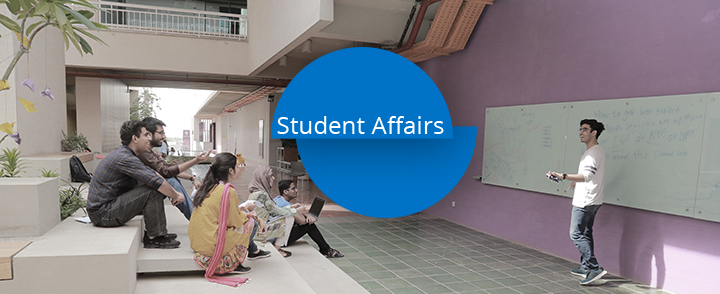
Habib University’s mission is to educate promising students from all backgrounds, thereby enabling them to become competent, caring, and critically conscious members of society. To achieve the mission, HU has created a vibrant community through its Student Affairs division, developing a diverse and inclusive environment.. Students from various geographical locations with diverse educational backgrounds and cultures enrich its beauty.
Our student community possesses a wide range of talents, skills, experiences and interests. HU Student Community uses this diversity to enrich each other’s experience by mentoring, coaching and learning from each other.
Aiming to be the best university in Pakistan, Habib is committed to supporting its diverse student body in harnessing their talents and achieving their goals. We believe in shaping the future of our students with care and compassion and engaging them in a thoughtful self-cultivation process. To realize this vision, the University has made huge investments in creating a comprehensive student support services framework. HU Student Affairs Support Services ensures the overall well-being of our students and helps them thrive academically and nurture themselves as thoughtful leaders and conscious citizens.







